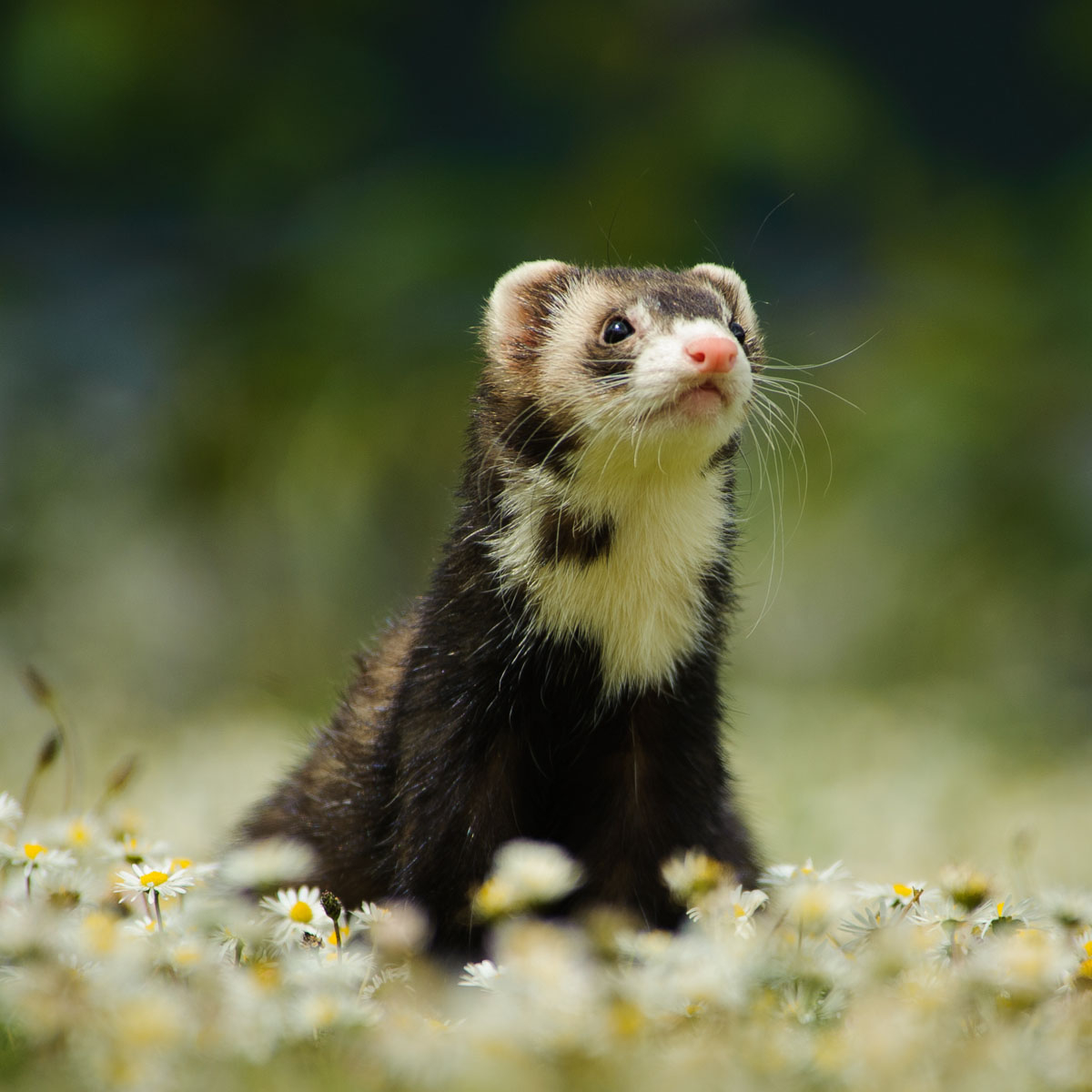Ferrets are enchanting and charismatic creaturesand they have captured the hearts of many pet owners with their unique and captivating behavior. From their curious and mischievous antics to their playful nature, ferrets exhibit a range of behaviors that make them truly special companions. Some of intriguing ferret behavior are:
-
Curiosity and Exploration: Ferrets are renowned for their insatiable curiosity and adventurous spirit. They possess an inherent desire to explore their surroundings, investigating every nook and cranny in their path. This curiosity often leads them to get into playful mischief, as they dart around, squeeze into tight spaces, and engage in exploratory behaviors that keep their owners entertained.
-
Playfulness: Playfulness is an integral part of a ferret's nature. They have boundless energy and love engaging in interactive play with their owners and fellow ferrets. Ferrets can be seen scampering, chasing toys, and engaging in friendly wrestling matches. Providing them with an assortment of toys, tunnels, and interactive play sessions not only keeps them physically active but also mentally stimulated.
-
Social Nature: Ferrets are highly social animals and thrive in the company of their human caregivers and fellow ferret companions. They form strong bonds and enjoy spending time with their human families, often seeking attention and affection. Proper socialization and regular interaction with their owners contribute to a well-adjusted and happy ferret.
-
Burrowing and Tunneling: Ferrets have a natural instinct to burrow and tunnel. They enjoy digging in soft bedding materials, blankets, or specially designed play tunnels. Providing appropriate outlets for this behavior, such as providing tunnels and blankets for them to burrow in, allows ferrets to engage in their natural instincts and provides mental stimulation.
-
Scent Marking: Ferrets have scent glands located near their anus, and they use these glands to mark their territory. Scent marking is a form of communication for ferrets, as they leave their distinct scent on objects or areas to establish ownership. It's important to note that this behavior can be minimized by spaying or neutering your ferret.
-
Chattering and Dooking: Ferrets have a unique vocalization known as "dooking." It is a high-pitched, warbling sound they make when they are excited, playful, or anticipating something enjoyable. Ferrets also exhibit a behavior called "chattering," where they make a rapid clacking sound with their teeth, often in response to excitement or frustration.
-
Pouching and Hoarding: Ferrets have a natural instinct to stash away small objects, also known as "pouching" or "hoarding." They often grab small items, such as socks, toys, or shiny objects, and hide them in secret places. This behavior is reminiscent of their wild ancestors' habits of storing food for later consumption.
Understanding and appreciating the behavior of ferrets is crucial for providing them with a stimulating and enriching environment. It's important to create a safe and engaging space that allows them to express their natural instincts while keeping them entertained and mentally stimulated.
By actively participating in their playtime, providing appropriate toys and interactive activities, and ensuring regular social interaction, one can foster a strong bond with ferrets and contribute to their overall well-being.
